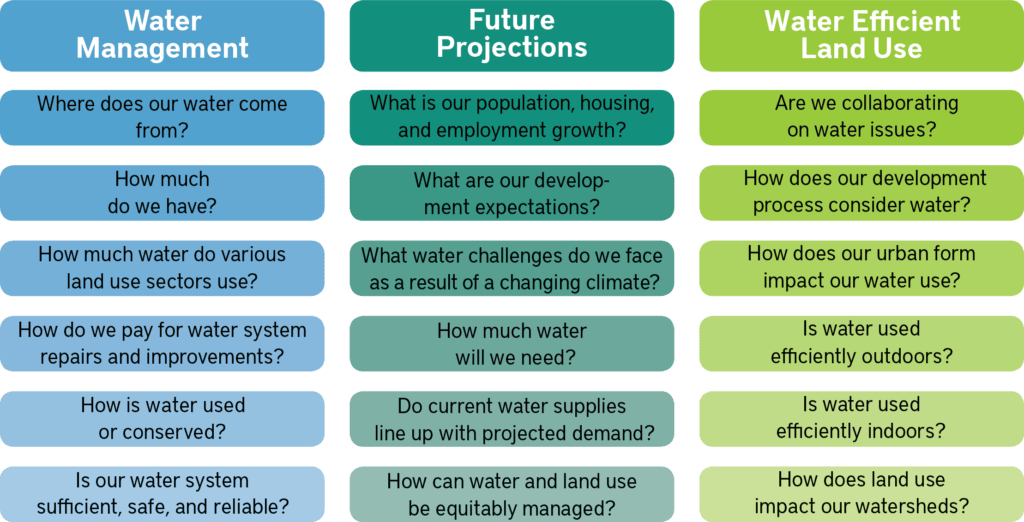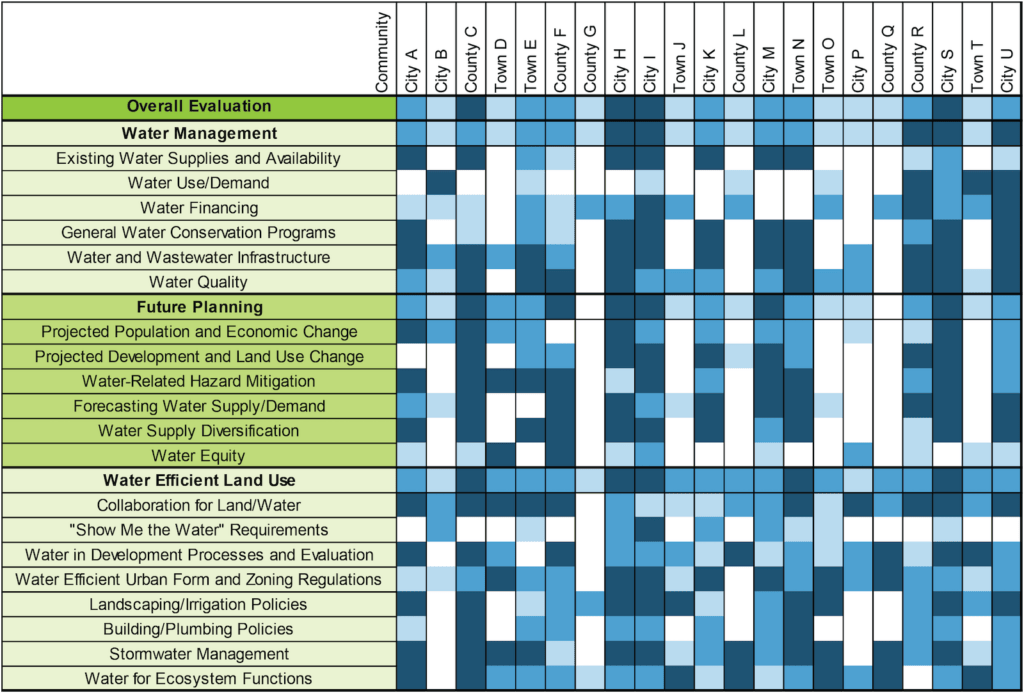Incorporating Water into Comprehensive Planning
Manual
The Babbitt Center for Land and Water Policy authored a manual to help land use planners incorporate water management into comprehensive plans. The comprehensive plan and its development process provide an opportunity for a community to bring goals and policies for water issues to the forefront of their future vision, solicit public input, and foster public buy-in for a more sustainable future. This manual demonstrates how land use planners can facilitate a comprehensive planning process and resulting plan that will ensure integration of water management into their community’s future vision, as well as the water-related topics such a vision might include.
The questions below prompt a land and water planning team to consider the water issues that may be relevant to their comprehensive plan. These questions supplement the Water Topics and Examples sections that form the bulk of the Incorporating Water into Comprehensive Planning manual. These questions can be used to quickly generate ideas about water topics that may be pertinent to a community, or identify topics that require additional data or information to answer and address. Further, these questions could be used in a public brainstorming workshop to gauge community members’ knowledge and values about local water issues.
Water-Related Questions to Answer in a Comprehensive Planning Process

Evaluation
The Babbitt Center reviewed comprehensive plans in the Colorado River Basin to evaluate the degree to which communities have integrated water management into their land use plans. These plan reviews were conducted using a matrix of 20 criteria and a scale that assigned a weight to the level of implementation of the criteria. Findings from this review, and examples from communities across the Colorado River Basin, are included in our manual.
Background
The Babbitt Center’s review of comprehensive plans throughout the Colorado River Basin sought to determine
- the state of land use and water planning integration in Colorado River Basin communities and;
- the gaps and opportunities to be addressed in land and water planning and management practices.
Comprehensive plans may not represent the whole suite of land and water planning activities in a community, but they reveal important information about which communities, regions, and states are incorporating water into foundational land use planning processes. Furthermore, they provide an opportunity to engage the public on water issues and can lay the groundwork for linking water to other land use processes, such as development review, zoning, data and modeling, or ordinances.
Methods
The Babbitt Center worked extensively through literature, peer, and plan review to identify water topics appropriate for inclusion in a comprehensive plan. This included an initial phase of plan reviews focused on Arizona and Colorado communities, followed by a revision that resulted in more broadly applicable evaluation categories and a matrix.
Sample Evaluation Matrix

Project Progress
The Babbitt Center continues to review plans and share insights about water in comprehensive planning through presentations about the work and by consultations with communities on how to integrate water management into their comprehensive plans.
For more information please contact the Babbitt Center at babbittcenter@lincolninst.edu or 602-393-4309.
